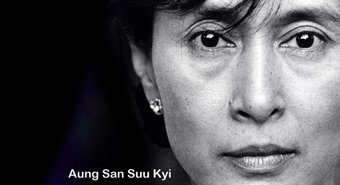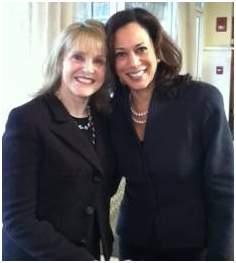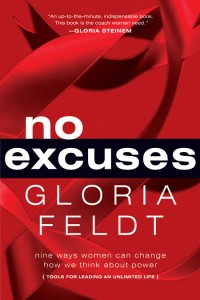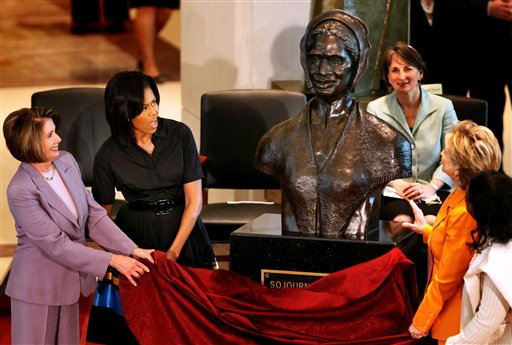9 Ways Blog
She’s Doing It: What Courtney Martin Learned This Year
Read MoreWhen I speak on college campuses, I score points with students when they find out I know Courtney Martin, author, among several books, of Perfect Girls, Starving Daughters and Do It Anyway. Though she’s the youngest of the four of us on the WomenGirlsLadies intergenerational feminist panel, she is usually the most together. The one who knows where we’re supposed to be when, gets the power point together, and remains calm when things go awry.
Follow Courtney @courtwrites and find her commentaries on The American Prospect and many other publications. Courtney is the Founding Director of the Solutions Journalism Network, along with New York Times columnist David Bornstein. In addition, she is the leader of the Op-Ed Project’s Public Voices Fellowship Program at Princeton University–coaching women academics to become part of public debate. She is a partner in Valenti Martin Media, a communications consulting firm focused on making social justice organizations more effective in movement building and making change and is an Editor Emeritus at Feministing.com.
Here’s what Courtney says she learned since I interviewed her for No Excuses:
Lesser-Known Women Often Make History
Today in the Women’s History Month series, let’s shine a light on lesser known women. 
In the spirit of the month, here are links to articles drawing attention to women you may not have heard of—and the awesome things they are doing today.
- Anna Clark has compiled a list of underrated women writers of novels, stories, poems, and graphic novels from around the globe.
- The BBC has profiled some of the women activists involved in Syria’s uprising.
- Bitch Flicks recommends 11 films about trailblazing women.
- Houston Press lists ten of their favorite Female Artists making music today. Rock on ladies!
Aung San Suu Kyi Says Value Change Over Regime Change
“Regime change can be temporary, but value change is a long-term business. We want the values in our country to be changed.”
As a contemporary figure making women’s history, Daw Aung San Suu Kyi reflects the kind of ‘power-to’ leadership which is truly earth shattering.
“Regime change can be temporary,” she says, “but value change is a long-term business. We want the values in our country to be changed. “
Winner of the Nobel Peace Prize in 1991 Daw Aung San Suu Kyi is the leading pro-democracy opposition leader in Myanmar, formerly known as Burma, one of the world’s most isolated and repressive nations.
Since a military junta grabbed power of the country in 1962, it has secured its power by rigging elections and suppressing opposition. Ms. Aung San Suu Kyi spent 15 of the last 20 years under house arrest after her party, the National League for Democracy, won an overwhelming victory in the 1990 elections but was denied power. In November 2010 elections, Myanmar’s main military-backed party won in a vote again engineered to assure the military’s continued grip on power. The National League of Democracy boycotted this election and called it what it was—undemocratic.
Ms. Aung San Suu Kyi—who was released from house-arrest November of 2010—and her party, the National League for Democracy, have chosen to participate in elections this time around. On April 1 of this year, Suu Kyi and other pro-democratic candidates will run for 47 of the 48 open seats in Parliament.
Her campaign speech, which will appear on National TV, will mark the first time the Nobel Peace laureate has been given the opportunity to use state media to promote her party’s platform. She calls for amending the 2008 constitution,
Read MoreFrom Olympe de Gouges to Women Demanding Rights Worldwide
“A woman has the right to mount the scaffold. She must possess equally the right to mount the rostrum [speaker’s platform].”
Olympe de Gouges was an 18th Century French playwright and political activist way ahead of her time, and her feminist and abolitionist writings stirred political discourse in ways that presaged uprisings by women around the world last week.
Disenchanted when equal rights were not extended to women after the outbreak of the French Revolution, Olympe de Gouges wrote a Declaration of the Rights of Woman and the Female Citizen. Modeled on the 1789 Declaration of the Rights of Man and of the Citizen by the National Assembly, De Gouges’ Declaration echoed the same language, replacing ‘Man’ with ‘Woman’.
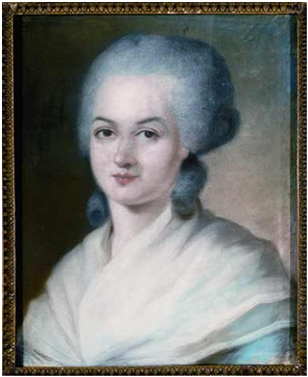 De Gouges argued that the rights revolutionaries were attempting to expand for men should be extended to women as well. She passionately insisted upon universal suffrage, legal equality in marriage, women’s right to divorce in cases of abuse and her right to property and custody of her children, among other things. In her postscript, Gouges exhorted women to awaken to consciousness of their rights to embrace their power. She encouraged them to step up, take action and demand equality.
De Gouges argued that the rights revolutionaries were attempting to expand for men should be extended to women as well. She passionately insisted upon universal suffrage, legal equality in marriage, women’s right to divorce in cases of abuse and her right to property and custody of her children, among other things. In her postscript, Gouges exhorted women to awaken to consciousness of their rights to embrace their power. She encouraged them to step up, take action and demand equality.
Sound familiar?
Read MoreLoretta Lynn, The Pill, and Family Planning: Happy International Women’s Day!
Just in time to celebrate International Woman’s Day, Catherine Eng contributes this blog post that celebrates a medical solution to family planning that many take for granted and yet remains out of reach 52 years later to millions of women around the world.
Country music legend Loretta Lynn was known for lyrics that bluntly addressed issues in the lives of many women. She believed no topic was off limits, as long as it spoke to other women.
In 1975, Lynn released The Pill, a single considered to be the first song to discuss birth control. The song tells a story of a wife who is upset about her husband getting her pregnant year after year, but is now happy because she can control her own reproductive choices. The song’s frank discussion of birth control was unprecedented at a time when many would have considered contraception a risqué subject matter. Some radio stations refused to play her song on these grounds.
“There’s gonna be some changes made right here on nursery hill…‘cause now I’ve got the pill.”
Be sure to click on the video link below to listen and laugh.
In an interview later in life, Lynn recounted how she had been congratulated after the song’s success by a number of rural physicians, telling her how The Pill had done more to highlight the availability of birth control in isolated, rural areas, than all the literature they’d released.
Fifty-two years after the inception of the pill in America, conservative newscaster Rush Limbaugh felt free to call Sandra Fluke, a Georgetown university student who asked her university to cover hormonal birth-control, a prostitute and a whore. His ignorant comment reminds us that there still exist widespread misconceptions and stigmas surrounding contraception. Let’s take the opportunity on International Women’s day to clear up any misconceptions, to examine the many social benefits of contraception and family planning.
Read MoreShe's Doing It: Philactivist Barbara Lee Sparks Power of Intention
Yes, I made up “philactivist.” But what else do you call someone who combines philanthropy with political activism in a unique way, driven by her power of intention. Barbara Lee is one of the women I profiled in No Excuses because I so admire her drive, her vision, and her commitment to women’s advancement in politics. This continues my series of “She’s Doing It” columns in which I ask women what they have learned since I interviewed them.
Barbara Lee pictured with California Attorney General Kamala Harris
Gloria Feldt: In No Excuses, I asked, “When did you know you had the power to_____?”
What have you learned about your power to _____ during the past year or so?
Going to Girl Scout camp at age 12 was my first time away from home. I vividly recall the sound and smell of fresh pine needles crunching under my feet as I gathered twigs to build a fire to earn my campfire badge. I remember rubbing two sticks together for what seemed like forever and with each spark I learned more and more about the power of intention. I was determined to start that fire. It was the first step for me in knowing my own power. Ever since I have kindled my belief in myself and have used the power of intention to make the world a better place for women.
Barbara Lee: Was there a moment when you felt very powerful recently? If so, please describe the circumstances, what you did, and why you were aware of your power. Was there a moment when you felt powerless recently? If so, please describe the circumstances, what you did, and why you felt your lack of power.
Read MoreYour Invitation to The No Excuses "Power To You" Virtual Book Tour
I’m celebrating the paperback release of No Excuses: Nine Ways Women Can Change How We Think About Power and most cordially invite you to join me on my No Excuses “Power To You” Virtual Book Tour.
There are two ways you can participate in an in-person chat with me
Read MoreWhat's The Next Great Leap For Women?
You can now find me on ForbesWoman.com. My first post will tell you why it took me so long to get started. And now that I’ve jumped into the deep end of the pool, I want to share what I think is the Next Great Leap for women. I’d love to know what your thoughts are. Victoria Pynchon has already weighed in with an amazing piece about sponsorship.
 Because my book, No Excuses: 9 Ways Women Can Change How We Think About Power, came out officially in paperback on Leap Day—a perfect day for a book about women’s relationship with power, no?—I’ve been thinking hard about what the next great leap forward for women should be. So I thought I’d better check out the history of the every-fourth-year calendar adjustment that gives us February 29.
Because my book, No Excuses: 9 Ways Women Can Change How We Think About Power, came out officially in paperback on Leap Day—a perfect day for a book about women’s relationship with power, no?—I’ve been thinking hard about what the next great leap forward for women should be. So I thought I’d better check out the history of the every-fourth-year calendar adjustment that gives us February 29.
Leap Day inspired a leap of vision and blazing hope for women in 5th Century Ireland when St. Bridget persuaded St. Patrick to declare a woman could do the unthinkable: ask a man to marry her.
At a time when a woman was, for all practical purposes, owned first by her father and then by her husband, marriage meant not love but economic survival for her and her children. No doubt many seized their one chance to override gendered power norms and choose their own fates.
The tradition continued, with merry belittlements to remind women how little power they had the rest of the time. Men had to pay a fine or give a silk dress if they refused marriage proposals. Women on the prowl for husbands sported red petticoats as warning so poor beleaguered men could dash in the other direction. Haha.
You may be laughing because Leap Day privilege now seems an amusing anachronism. Not only do the majority of men and women think it’s perfectly fine for a female to propose marriage, the End of Men has been proclaimed, Women’s Nation declared, and New York Times columnist Nick Kristof dubs women “Mistresses of the Universe.”
But such puffery masks how far women have yet to go to achieve genuine parity. The next norm-changing leap must be women creating and earning wealth that places the female 51 percent of the population into power balance with their male counterparts.
Read MoreWe’ve Come a Long Way, Maybe: Women’s History Creates the Future
“If women want any rights more than they got, why don’t they just take them, and not be talking about it.”
— Sojourner Truth, 1797-1883. Former slave, abolitionist,
women’s rights activist, Methodist minister.
Truth’s admonition seems archaic now. Why are we still “talking about it?”
Is women’s history of struggle for equal rights relevant in a world where women have outpaced men in earning college degrees, equaled their numbers in the workplace, and snatched the family purse to make 85% of consumer purchases?
Since “The End of Men” has been declared and women dubbed “Mistresses of the Universe” shouldn’t young women today, at least those in the industrialized world, feel powerful enough to be and do anything they want?
And shouldn’t more sympathy go to men these days, as the current efforts to gain acceptance for a men’s rights movement have suggested?
Read MoreInspiring Black HERStories
February is Black History Month and March is Women’s History Month. This post by Catherine Engh ties the two together in historical context with links to some amazing but little-known women’s stories. Wow. Feel free to add stories of other such women in the comment section.
And be sure to check back here often as I continue my annual Women’s History Month tradition of highlighting many amazing women—some well known and others not—who have shaped our history. And as you know, No Excuses Power Tool #1 is “Know your history and you can shape the future of your choice.”
Janell Hobson, blogger, social critic and professor of women’s studies, spotlights the lives of various fierce black women throughout history this February on Ms. Magazine’s blog. Hobson’s fascinating posts take as subject black female vocalists, vanguards of the second-wave feminist movement, jazz-age expatriates in Paris, fugitive slaves, civil rights organizers and contemporary environmental justice advocates.
Who knew about Sookie, a slave woman who resisted rape by pushing her master into a soapbox filled with boiling water?
Read More